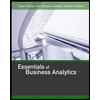
Concept explainers
To answer the next three questions, refer to the following example. In 2003, Porsche unveiled its new sports utility vehicle (SUV), the Cayenne. With a price tag of over $40,000, the Cayenne goes from zero to 62 mph in 8.5 seconds. Porsche's decision to enter the SUV market was in response to the runaway success of other high-priced SUVs such as the Mercedes-Benz M class. Vehicles in this class had generated years of very high profits. The Cayenne certainly spiced up the market, and, in 2006, Porsche introduced the Cayenne Turbo S, which goes from zero to 60 mph in 4.8 seconds and has a top speed of 168 mph. The base price for the Cayenne Turbo S in 2014? Almost $115,000
Some analysts questioned Porsche’s entry into the luxury SUV market. The analysts were concerned because not only was Porsche a late entry into the market but also the introduction of the Cayenne might damage Porsche’s reputation as a maker of high-performance automobiles.
10. Erosion In evaluating the Cayenne, would you consider the possible damage to Porsche’s reputation as erosion?
Want to see the full answer?
Check out a sample textbook solution
Chapter 6 Solutions
CORPORATE FINANCE ACCESS CARD
- The term 'beta' in stock market analysis measures: A) The total value of a company’s stocks B) A stock’s sensitivity to the overall market C) The dividend yield of a stock D) A stock’s price-to-earnings ratioarrow_forwardPlease don't use chatgpt The term 'beta' in stock market analysis measures: A) The total value of a company’s stocks B) A stock’s sensitivity to the overall market C) The dividend yield of a stock D) A stock’s price-to-earnings ratio i wiilarrow_forwardDo not use ChatGPT! Which of the following best describes the concept of leverage in finance? A) Using borrowed funds to increase the potential return on investment B) Reducing risk by diversifying assets C) A method to avoid paying taxes D) Increasing the company’s profit marginarrow_forward
- Which of the following best describes the concept of leverage in finance? A) Using borrowed funds to increase the potential return on investment B) Reducing risk by diversifying assets C) A method to avoid paying taxes D) Increasing the company’s profit marginarrow_forwardI need help in this question! What is a major feature of a 'fixed-rate bond'? A) The interest rate changes with market conditions B) The bond pays a fixed interest rate throughout its life C) The principal is not repaid until maturity D) The bond can be converted into stockarrow_forwardWhich of the following best describes the concept of leverage in finance? A) Using borrowed funds to increase the potential return on investment B) Reducing risk by diversifying assets C) A method to avoid paying taxes D) Increasing the company’s profit margin i need help!arrow_forward
- What is a major feature of a 'fixed-rate bond'? A) The interest rate changes with market conditions B) The bond pays a fixed interest rate throughout its life C) The principal is not repaid until maturity D) The bond can be converted into stockarrow_forwardDon't use ChatGPT! Which of the following is a form of equity financing? A) Bank loan B) Issuance of common stock C) Bonds D) Trade creditarrow_forwardWhich of the following is a form of equity financing? A) Bank loan B) Issuance of common stock C) Bonds D) Trade creditno aiarrow_forward
- In which of the following situations would a company most likely issue bonds? A) When it needs to raise short-term capital B) When it wants to increase its working capital C) When it seeks long-term financing D) When it wants to buy back its own shares Need help!arrow_forwardI need answer for this question! In which of the following situations would a company most likely issue bonds? A) When it needs to raise short-term capital B) When it wants to increase its working capital C) When it seeks long-term financing D) When it wants to buy back its own sharesarrow_forwardIn which of the following situations would a company most likely issue bonds? A) When it needs to raise short-term capital B) When it wants to increase its working capital C) When it seeks long-term financing D) When it wants to buy back its own sharesarrow_forward
 Essentials of Business Analytics (MindTap Course ...StatisticsISBN:9781305627734Author:Jeffrey D. Camm, James J. Cochran, Michael J. Fry, Jeffrey W. Ohlmann, David R. AndersonPublisher:Cengage Learning
Essentials of Business Analytics (MindTap Course ...StatisticsISBN:9781305627734Author:Jeffrey D. Camm, James J. Cochran, Michael J. Fry, Jeffrey W. Ohlmann, David R. AndersonPublisher:Cengage Learning
